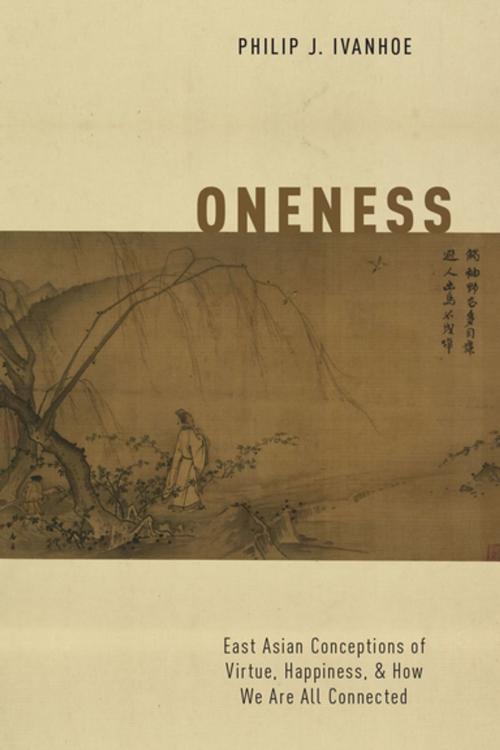Oneness
East Asian Conceptions of Virtue, Happiness, and How We Are All Connected
Nonfiction, Religion & Spirituality, Eastern Religions, General Eastern Religions, Philosophy, Eastern, Ethics & Moral Philosophy| Author: | Philip J. Ivanhoe | ISBN: | 9780190840532 |
| Publisher: | Oxford University Press | Publication: | November 1, 2017 |
| Imprint: | Oxford University Press | Language: | English |
| Author: | Philip J. Ivanhoe |
| ISBN: | 9780190840532 |
| Publisher: | Oxford University Press |
| Publication: | November 1, 2017 |
| Imprint: | Oxford University Press |
| Language: | English |
At the center of a constellation of key ideas in East Asian philosophical traditions, there lies a conception of oneness among human beings. Human beings are intricately and inextricably intertwined and share a common destiny with other people, creatures, and things. The ramifications of this idea are wide-reaching, and resonate with important debates and concerns in contemporary Western philosophy, but many at the forefront of their fields in the West are unaware of the fundamental shift in perspective that might be available to them. One of Ivanhoe's aims in this work is to challenge the dominant paradigm of hyper-individualism, which still enjoys a commanding position in a great deal of contemporary theory and practice in the humanities and social sciences, and to describe and advocate for an alternative conception and sense of self, world, and the relationship between them. In particular, Ivanhoe, who has an extensive background in and has published influential work on virtue ethics and Asian philosophy, investigates the implications of oneness for conceptions of the self, virtue, and human happiness. Through the lens of oneness, he explores topics such as conceptions of the self, selfishness and self-centeredness, virtues, spontaneity, and happiness, drawing support from wide-ranging, interdisciplinary sources. Rather than starting from the standpoint of Western philosophy and then reaching out to Asian philosophy from a distance, Ivanhoe advances a thesis drawn from East Asian sources and explicitly challenges the theoretical asymmetry that is characteristic of most comparative study, which often simply applies Western theories to non-Western material.
At the center of a constellation of key ideas in East Asian philosophical traditions, there lies a conception of oneness among human beings. Human beings are intricately and inextricably intertwined and share a common destiny with other people, creatures, and things. The ramifications of this idea are wide-reaching, and resonate with important debates and concerns in contemporary Western philosophy, but many at the forefront of their fields in the West are unaware of the fundamental shift in perspective that might be available to them. One of Ivanhoe's aims in this work is to challenge the dominant paradigm of hyper-individualism, which still enjoys a commanding position in a great deal of contemporary theory and practice in the humanities and social sciences, and to describe and advocate for an alternative conception and sense of self, world, and the relationship between them. In particular, Ivanhoe, who has an extensive background in and has published influential work on virtue ethics and Asian philosophy, investigates the implications of oneness for conceptions of the self, virtue, and human happiness. Through the lens of oneness, he explores topics such as conceptions of the self, selfishness and self-centeredness, virtues, spontaneity, and happiness, drawing support from wide-ranging, interdisciplinary sources. Rather than starting from the standpoint of Western philosophy and then reaching out to Asian philosophy from a distance, Ivanhoe advances a thesis drawn from East Asian sources and explicitly challenges the theoretical asymmetry that is characteristic of most comparative study, which often simply applies Western theories to non-Western material.















